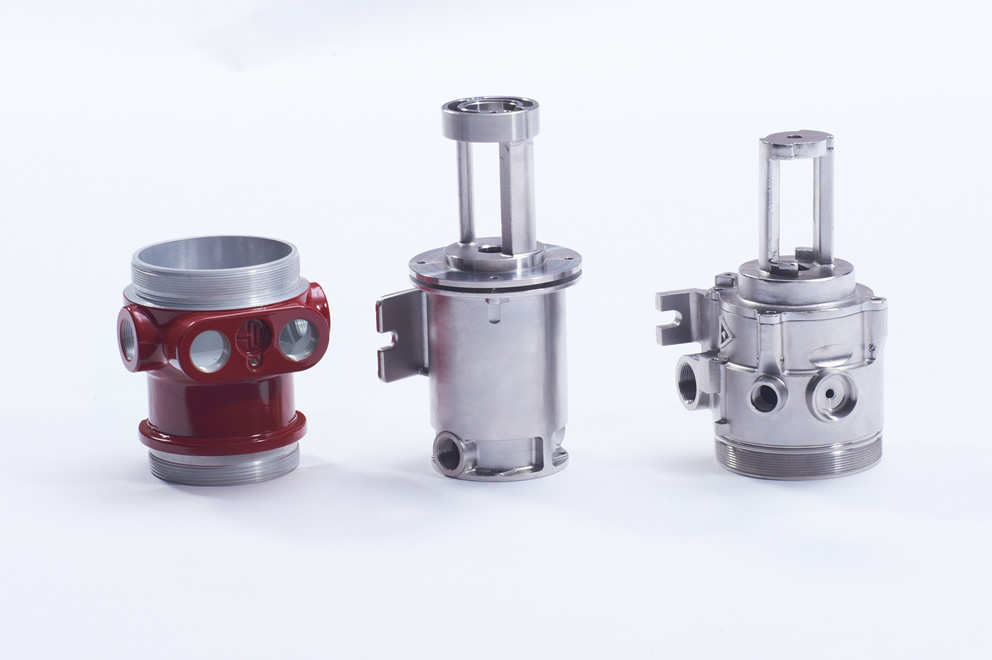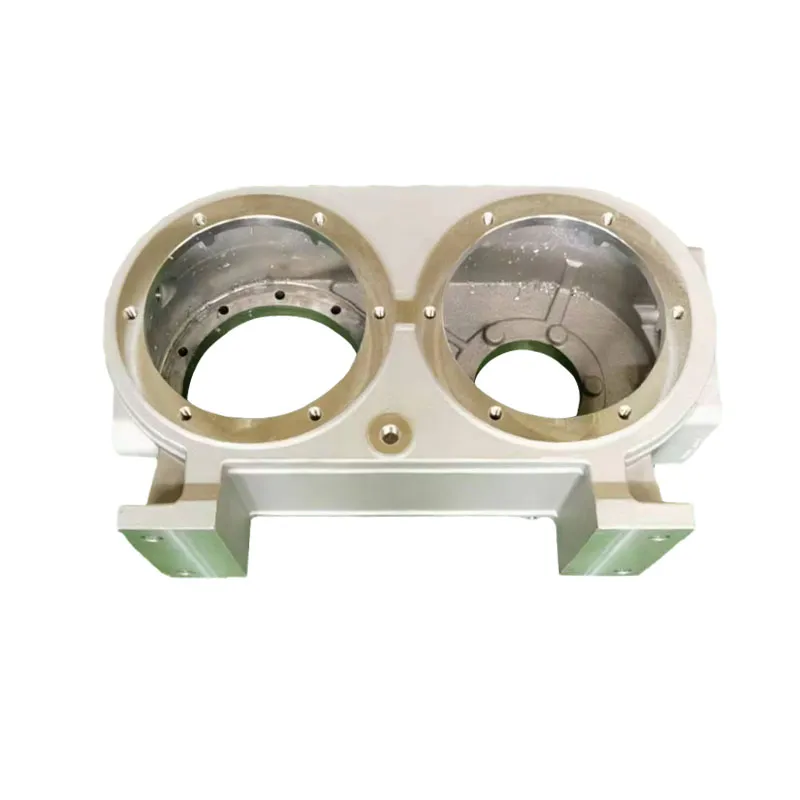Precision aluminum casting and Aluminum Foundry partnerships that advance industrial success
Checking out the Role of Shop Services in Progressing Modern Design Solutions
Shop solutions are important in forming modern-day engineering solutions - Precision aluminum casting. They link the space in between conventional production strategies and the needs of modern markets. With advancements in automation and sustainability, factories are advancing to fulfill the demands of industries such as aerospace and automotive. This improvement questions concerning the effects for products, processes, and future technologies. What obstacles and opportunities lie ahead for foundry solutions in this rapidly transforming landscape?
The Development of Foundry Services in Design

The assimilation of computer-aided design (CAD) and simulation software has actually changed the style and manufacturing procedures, enabling foundries to produce complex geometries with greater accuracy. The shift in the direction of eco-friendly methods has led to the fostering of greener innovations and reusing initiatives within factories. As markets significantly focus on customization and quick prototyping, factory services have expanded their capabilities, guaranteeing they stay crucial factors to the engineering landscape. This development emphasizes the foundry's important function in sustaining developments across numerous sectors, including automobile, aerospace, and energy.
Secret Procedures and Methods in Modern Foundries
Modern shops use a selection of vital processes and methods that enhance the effectiveness and top quality of metal casting. Among these, sand casting stays widespread because of its versatility and cost-effectiveness. Using innovative technologies, such as computer-aided style (CAD) and computer-aided production (CAM), enables exact modeling and manufacturing, ensuring high precision in part dimensions. In addition, financial investment spreading is preferred for producing complicated geometries with superb surface area coatings.
Automation and robotics improve manufacturing rate and consistency while decreasing labor costs. Strategies like additive manufacturing are progressively integrated to generate detailed mold and mildews and cores, therefore decreasing material waste. The application of thermal analysis aids in optimizing spreading procedures by forecasting and controlling solidification habits. Jointly, these processes and methods exhibit just how modern foundries are adapting to satisfy the needs of contemporary design challenges, making certain superior product high quality and functional effectiveness.
The Significance of Products Choice in Foundry Solutions
Picking the appropriate materials is essential in factory services, as it straight affects the mechanical homes, toughness, and total efficiency of the last item. Different materials possess one-of-a-kind features, such as tensile strength, corrosion resistance, and thermal stability, which need to straighten with the intended application of the cast parts. Metals like light weight aluminum and steel are commonly picked for their strength-to-weight ratio, while alloys can enhance certain efficiency characteristics.
The choice process involves considering aspects such as availability, price, and manufacturability, which can especially impact task timelines and spending plans. Additionally, advancements in product science allow the growth of innovative compounds and specialized alloys that deal with emerging engineering challenges. As a result, a complete understanding of product residential properties and their ramifications is vital for engineers and foundry experts to attain successful outcomes in their jobs. This cautious selection procedure eventually enhances the dependability and effectiveness of completion items.
Factory Services in Aerospace and Automotive Applications
Shop solutions play an essential role in the aerospace and automobile markets, where accuracy and performance are paramount. These industries rely greatly on the manufacturing of facility elements that need to fulfill strenuous high quality standards and endure extreme conditions. Foundries offer vital services such as spreading, machining, and ending up, making certain parts are light-weight yet durable, vital for enhancing gas performance and safety and security.
In aerospace, shop services contribute to the production of wind turbine blades, engine parts, and structural components, every one of which need high-performance products and intricate styles. In the auto industry, shops provide engine blocks, chassis components, and transmission instances, focusing on resilience and weight reduction.
Advanced foundry methods, consisting of additive production and accuracy spreading, are significantly used to satisfy the details requirements of these industries. By supplying tailored services, factory solutions aid drive advancement and preserve competitive advantages in the fast-evolving aerospace and auto landscapes.
Technologies Driven by Factory Capabilities
Numerous technologies in engineering are sustained by the advanced capacities of shop solutions. These solutions allow the manufacturing of complicated geometries and high-performance products that are essential for modern-day applications. For example, additive production, typically called 3D printing, has seen significant developments via factory methods, permitting the rapid prototyping of elaborate layouts. Furthermore, the capability to cast light-weight alloys has revolutionized markets such as aerospace and automotive, leading to improved fuel efficiency and efficiency.
Foundries are progressively incorporating smart modern technologies, such as automation and data analytics, to enhance production effectiveness and quality control. These technologies not just lower waste yet also allow customization at range, meeting the details needs of clients. By leveraging advanced factory capacities, designers can explore brand-new frontiers in item style and functionality, inevitably driving development across different fields and read this post here developing a foundation for future advancements.
Future Trends in Shop Solutions and Design Solutions
The future of factory solutions is shaped by emerging fads such as lasting manufacturing methods, which focus on environmental duty. Automation and clever technologies are set to improve effectiveness and precision, while increasing modification and flexibility will certainly meet the evolving needs of customers. As these patterns progress, they will redefine the landscape of engineering services in the shop field.
Sustainable Manufacturing Practices
As markets increasingly focus on ecological duty, lasting production techniques within shop solutions are becoming vital to modern-day design remedies. These techniques concentrate on reducing waste, reducing power intake, and utilizing eco-friendly materials throughout the manufacturing process. By implementing techniques such as recycling scrap metal and enhancing melting procedures, factories can notably decrease their carbon impact. In addition, the fostering of life process assessments enables makers to assess the environmental effect of their items from beginning to disposal. Collaborating with distributors committed to sustainability further improves the performance of these campaigns. Eventually, welcoming sustainable manufacturing not just lines up with international environmental goals however likewise promotes innovation and competitiveness in the rapidly progressing design landscape.
Automation and Smart Technologies
While several industries are accepting technological innovations, factory solutions are experiencing a considerable change via automation and wise modern technologies. The assimilation of robotics and automated systems boosts production efficiency, reduces human mistake, and increases the production process. Smart innovations, such as IoT and AI, make it possible for real-time surveillance and anticipating maintenance, which enhance functional performance and reduce downtime. These advancements facilitate data-driven website here decision-making, enabling factories to respond swiftly to market needs and improve product high quality. Furthermore, automation reduces labor costs and improves office security by taking care of harmful tasks. As foundry solutions continue to adopt these advancements, they are poised to redefine design remedies, causing enhanced competition and sustainability in the production market.
Modification and Adaptability Patterns
Arising patterns in shop services significantly stress personalization and flexibility to fulfill one-of-a-kind consumer requirements. This shift mirrors a wider need for tailored engineering remedies that adjust to details job requirements and market standards. Firms are buying sophisticated technologies, such as additive production and electronic modeling, enabling them to create personalized components efficiently and cost-effectively. Therefore, foundries are relocating far from one-size-fits-all approaches, providing customers the capability to customize designs and products in real-time. Additionally, partnership between engineering teams and factory solutions is becoming extra integrated, fostering technology and increasing time-to-market. This pattern not just enhances item performance yet also sustains sustainability by lessening waste via specific manufacturing processes.
Often Asked Inquiries
What Are the Regular Expenses Associated With Factory Services?
Normal costs connected with factory services consist of material expenditures, labor costs, tools usage charges, and expenses prices - Precision aluminum casting. These expenses can differ extensively based on project complexity, quantity, and specific requirements of the design solution involved
How much time Does the Foundry Refine Normally Take?
The foundry process normally takes anywhere from a number of weeks to a few months, depending on variables such as complexity, product needs, and production quantity, Resources which can considerably affect timelines and total task delivery.
What Industries Advantage A Lot Of From Foundry Solutions?
Industries such as automobile, aerospace, and building advantage considerably from foundry solutions. These markets depend on accuracy spreading and metal fabrication to create intricate elements, boosting item performance and functional effectiveness in their corresponding applications.
What Qualifications Should Shops Possess?
Shops must have accreditations such as ISO 9001 for top quality management, ISO 14001 for ecological monitoring, and details market accreditations like AS9100 for aerospace or IATF 16949 for vehicle, guaranteeing compliance and quality control.
Exactly How Do Foundries Ensure Quality Assurance in Their Procedures?

Foundry services are necessary in forming modern engineering remedies. As design techniques have advanced, the role of shop services has transformed significantly to fulfill advancing market needs. As sectors progressively focus on modification and quick prototyping, foundry services have actually increased their abilities, guaranteeing they remain necessary factors to the design landscape. As sectors progressively focus on environmental duty, sustainable production techniques within shop services are ending up being vital to modern-day design remedies. In addition, partnership in between engineering teams and factory services is becoming extra incorporated, cultivating innovation and accelerating time-to-market.